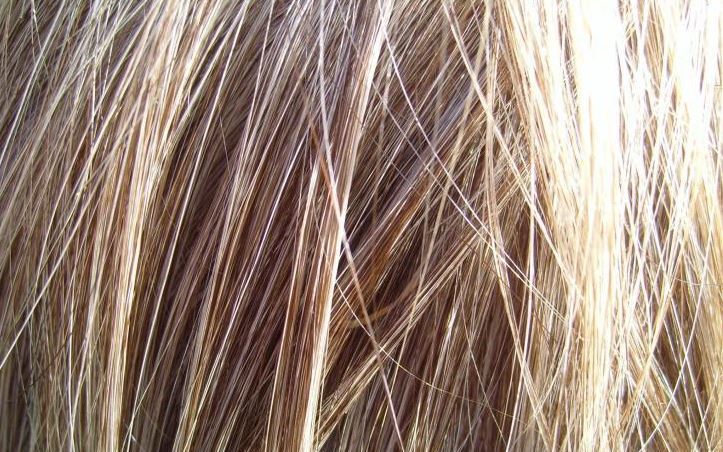The hair usually falls more in the changes of season. However, if you see what happens throughout the year, it may be due to nutritional deficiencies in your diet
Hair loss is a matter that affects and concerns both men and women. This disorder encompasses problems ranging from mild hair loss to baldness.
In this article, we share with you the most frequent possible causes of hair loss. We also tell you what are the most common medical treatments and some tips that would supposedly help reduce hair loss. Keep reading!
About hair loss
We must keep in mind that we may be making this disorder worse. Nervous disorders such as stress or anxiety could make the situation worse. Also, a bad or poor diet could lead us to lose more than 100 hairs per day.
A 2019 study noted that while it is believed that micronutrients such as vitamins and minerals would play an important role in the normal development of the hair follicle and the function of immune cells, the relationship is unclear. However, it is assumed that nutritional deficiency would be a risk factor for alopecia.
Finally, we must comment that the term “hair loss shampoo” is still a commercial claim. There is no scientific evidence to assert its effectiveness against hair loss.
Causes of hair loss
The fall of hair can be due to different reasons. We highlight some of the most frequent ones based on an article published in Harvard Health Publishing, although of course there are more possible causes:
- Physical stress
- A prolonged illness.
- An important surgery
- A serious infection
- A hormonal change.
- Side effects of medications and chemotherapy.
- A medical disease such as lupus, syphilis, a thyroid disease, etc.
- A serious nutritional problem.
- Alopecia areata.
- There is also baldness due to hereditary patterns or androgenic alopecia.
- Some people even have a rare psychiatric disorder (trichotillomania) in which they tear their hair or twist it causing patches of baldness.
Diagnosis
The doctor will diagnose the cause of hair loss based on medical history. Of course, you will also consider the medications you take, the state of nutrition, hairdressing habits, and a physical exam.
If your doctor suspects a fungal infection of the scalp, he or she will take a hair sample for a laboratory test. However, if your doctor suspects that it could be a disease or a thyroid problem, iron deficiency or hormonal imbalance, he will request blood tests.
Solutions to hair loss
In the case of androgenic alopecia, that is, common baldness, the most commonly prescribed treatments are usually :
- Minoxidil 5% (lotion).
- Finasteride (oral treatment), although this is not recommended for women.
Another option sometimes advised to recover the hair is the hair transplant. The technique consists of extracting hair from the back of the head and grafting it in areas where it is scarce. But not everyone is a candidate because there needs to be enough hair in the supply area to cover the scarce area. Besides, the hair takes between eight months and a year.
Other tips
- Wash your hair frequently. However, it is very important to use the right shampoo for your hair type.
- In cases of oily hair, frequent washing is also recommended. Thus we reduce the sebum of the surface of the scalp.
- In cases of dandruff and grease, when the hair is washed frequently, it is advisable to alternate a treatment shampoo with another frequently used shampoo. With the two shampoos, you have to make 2 soaps. On the second, the foam should be left for 2 to 3 minutes, without friction. The comb should be wide and separated teeth. Metal brushes should be avoided.
- Properly protect hair from the sun, especially in summer, which is the time of year when we punish the scalp the most.
Supplements for Hair Loss
- Biotin: This vitamin is found in large quantities in brewer’s yeast, liver fillets, and eggs. However, eggs must be cooked, since if they are raw our body does not absorb biotin. It should be noted that the evidence on the efficacy of biotin for hair loss is limited.
- Iron: We find it in meats, fish, and eggs and foods of non-animal origin, such as lentils and spinach. However, iron in vegetables has difficult assimilation. To absorb that iron you have to take a lot of vitamin C, with food or as a supplement.
- Liquid organic silicon: This supplement could help us strengthen hair, skin, and nails and prevent alopecia. However, more studies are needed in this regard.
Finally, we emphasize that the normal thing is that they fall between 40 and 100 hairs a day. If you are on a balanced diet and hair falls above these amounts, visit your doctor.
